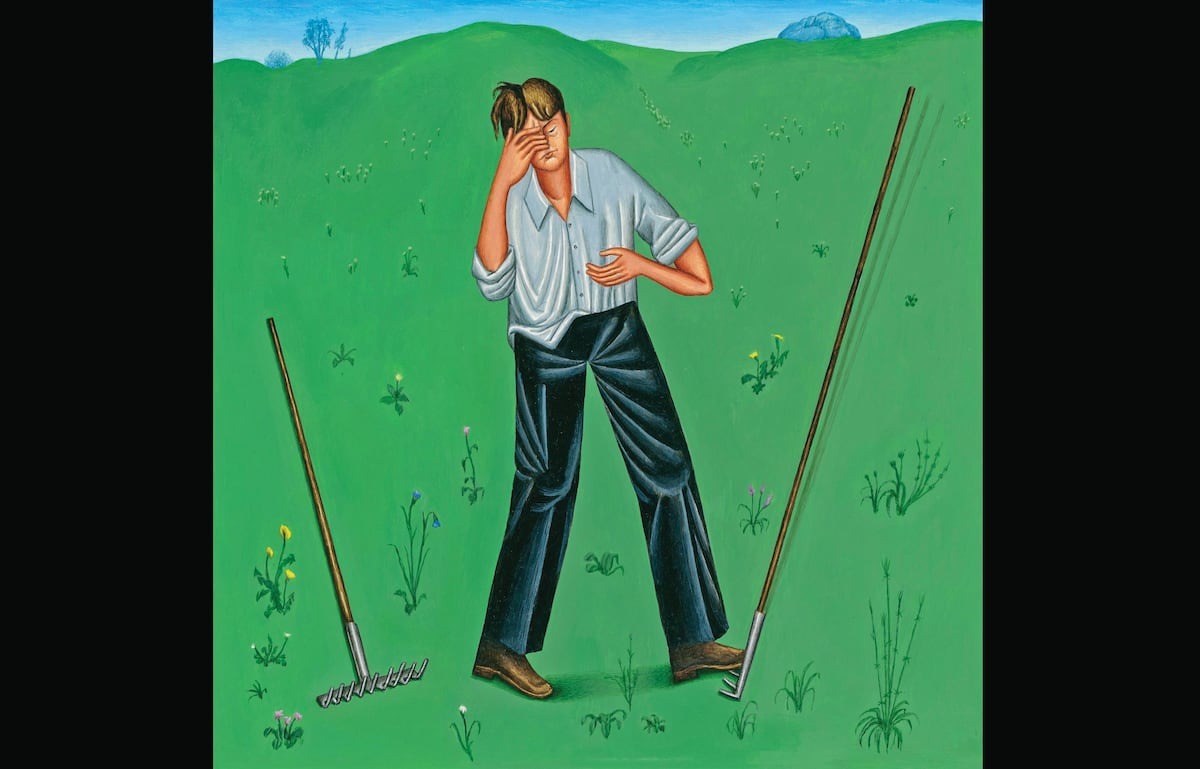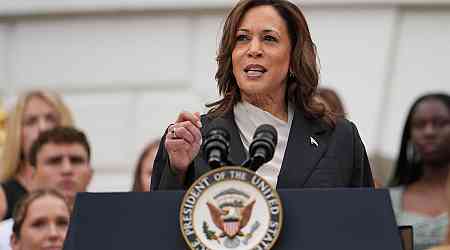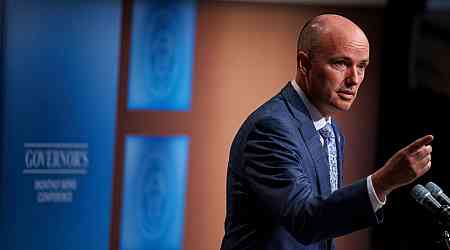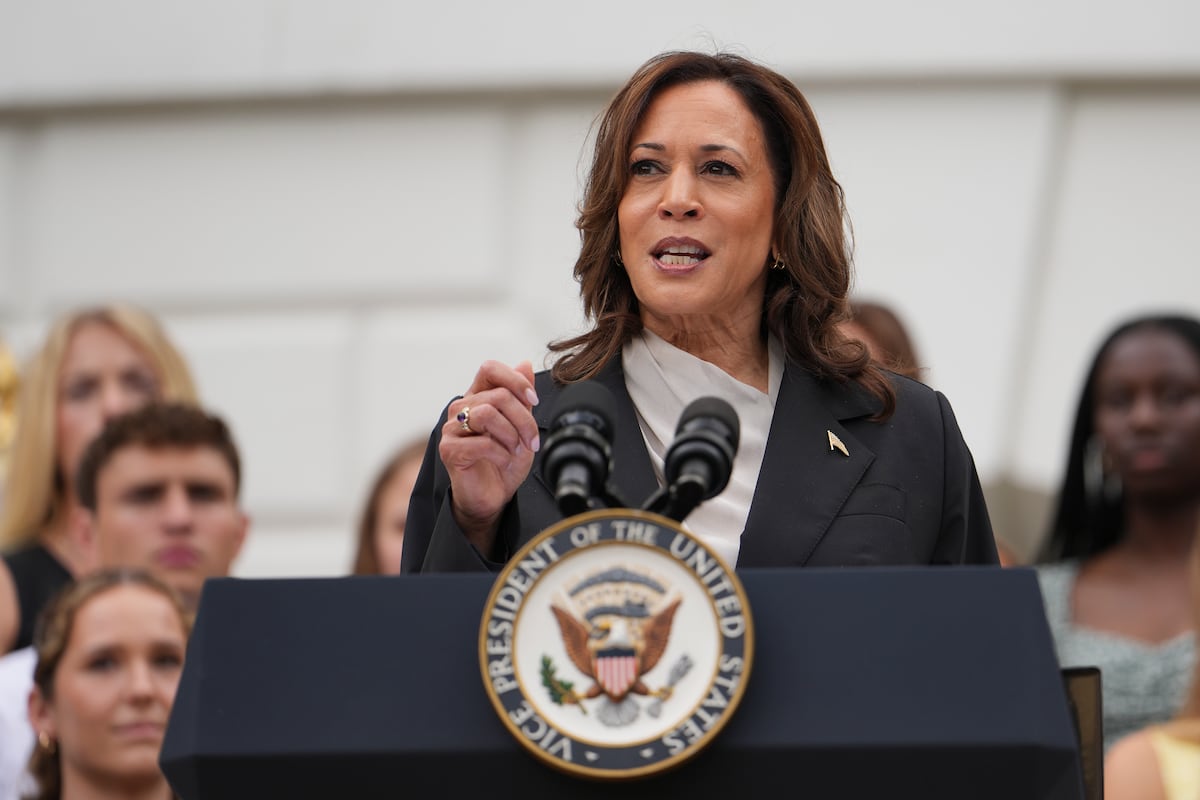Donald Trump’s economic panacea is to impose over-the-top tariffs on all imports, potentially generating enough revenue to eliminate the federal income tax. It is hardly an innovative idea. On the contrary, if enacted, it would return our postmodern economy to that of the Gilded Age of the late 19th century, to economic policies favoring the wealthy over the poor and middle class, when tariffs were the main source of government revenue.
That tariff-dominant era ended with the 16th Amendment to the U.S. Constitution in 1913, which facilitated the adoption of a graduated federal income tax. The income tax, not tariffs, has been the main source of federal revenue ever since, and for good reason.
Tariffs are a tax on imports, the functional equivalent of a sales tax, imposing a proportionately bigger burden on those with modest incomes. As my colleagues at the Peterson Institute for International Economics point out, Mr. Trump’s proposal for a 10 percent tariff on all imports (which totaled $3.1 trillion last year) and a 60 percent tariff on imports from China would cost a typical middle-income household at least $1,700 in increased expenses each year.
Mr. Trump’s radical “all tariff policy” would be self-defeating. It could not possibly fund our modern national security and social welfare needs, because tariff rates would have to rise impossibly high to yield the $2 trillion generated by individual and corporate income taxes. The resulting tariff war, when countries inevitably retaliate, would shrink imports and reduce tariff revenues. And it would discard or marginalize the one tax we have that requires people to pay their fair share.
Following the Revolutionary War, the national government did indeed rely almost entirely on tariffs, as pushed by Treasury Secretary Alexander Hamilton to avoid distasteful excise taxes and encourage the new nation’s infant manufacturing sector. The Civil War quickly proved their inadequacy. To meet the resulting fiscal crisis, Abraham Lincoln persuaded Congress to pass the very first income tax in 1862, essentially a tax on only the very top earners.
That was phased out after the war, returning the United States to its reliance on tariffs and the chaos and class resentment they created. In 1889, Thomas Shearman, a prominent lawyer, wrote a widely disseminated essay titled “The Owners of the United States” that listed families including the Astors, Vanderbilts, Rockefellers and Morgans who presided over untaxed fortunes from railroads, factories, oil refineries, mines and banks.
Overreliance on tariffs helped foment an era of economic shocks. The Panic of 1893, at the time the worst depression in American history, was triggered by business and bank failures but aggravated by foreign creditors demanding payment in gold, which only encouraged the U.S. Treasury to push for even higher tariffs to curb imports.
Out of this crisis a new star of the Democratic Party arose, William Jennings Bryan, the “Great Commoner,” who famously warned against America crucifying itself on a “cross of gold.” He also crusaded against protectionism by holding up clothing and kitchen utensils at his rallies and declaring that tariffs drove up their cost by 50 percent.
Bryan as the Democratic presidential nominee lost the 1896 election to William McKinley, a favorite of Mr. Trump’s (he calls McKinley “the Tariff King”). But Bryan’s ideas lived on. By 1912, a Democratic free-trader and income tax supporter, Woodrow Wilson, the reformist governor of New Jersey, had won the White House.
The income tax was enacted in 1913 in Wilson’s first year in office. Once again, it was war and the urgent need for money, rather than political ideology, that proved the impracticality of relying on tariffs. To fund the mobilization for World War I, Wilson raised the top marginal income tax rate to 77 percent. (Since then, the top rate has fluctuated up and down, rising above 90 percent in World War II and now at 37 percent.)
The Democrats’ defeat after the war brought traditional Republicans with their high-tariffs philosophy back into power and they raised tariffs throughout the 1920s. That culminated in the infamous Smoot-Hawley Tariff Act of 1930, which was enacted in the misplaced belief that tariffs could protect American industries and farmers after the 1929 stock market crash. Instead, they fueled a catastrophic global trade war, strangled commerce, unleashed competitive currency devaluations and intensified a worldwide depression that contributed to the rise of Nazism and worldwide war.
The advent of President Franklin Roosevelt, a free-trader who had served under Wilson as assistant secretary of the Navy, buried the outdated notion of equating tariffs with prosperity. Indeed, his secretary of state, Cordell Hull, a former Tennessee congressman, had helped enact the income tax and lower tariffs a generation earlier and went on to become an eloquent postwar champion of international trade to save the world from another global crisis.
American politics have a way of flipping the policies of parties. In the modern era, beginning with President Ronald Reagan, it was Republicans who led the way to lower trade barriers as a boon to economic growth. Reagan, the conservative, had in the 1960s demonized the progressive federal income tax as a Marxist plot. He believed its confiscatory rates in the 1940s discouraged work, recalling that in Hollywood he stopped making films halfway through the year when the top marginal rate meant he would turn nearly all his additional income over to the government.
But though Reagan negotiated “voluntary” export curbs with Japan, he never advocated higher tariffs. That opposition fell to organized labor and partly to the Democrats, most of whom have opposed trade deals ever since.
Turning away from President Reagan and his successors, Mr. Trump is the first major Republican of the modern era to enact sweeping higher tariff barriers to protect American industries and farmers. In his first term, he instituted several disparate tariffs. They failed to reduce trade deficits and instead incited Europe, Canada and China to retaliate, forcing his administration to pay $23 billion to bail out farmers when China hit back with tariffs on U.S. agriculture products.
For his potential second term, Mr. Trump and his running mate, Senator JD Vance of Ohio, would bring the country back to its protectionist past at a time when large segments of the economy depend on trade and foreign investment, not to mention immigration for high-end tech jobs and low-end jobs in services and agriculture.
A case can be made for selective tariffs to protect national security and sensitive supply chains, and encourage green technologies. The Biden administration has pushed for these steps while keeping Mr. Trump’s tariffs largely in place, incurring many of the same costs. The long historical record demonstrates these are borne not by other countries, as Mr. Trump keeps insisting, but by American consumers and industries.
Tariffs may provide a marginal help to some domestic producers, but only up to a point. Steel manufacturing may gain, but manufacturers who depend on imported steel will lose. Tariffs on solar panels and electric vehicles from China, pushed also by President Biden, may help domestic interests, but they are making it more expensive to adapt to the energy transition.
Economic policies come with trade-offs, and tariffs are no exception. An across-the-board tariff policy would take us not to a prosperous future but to a reactionary past that stopped working in the 19th century, when it nearly bankrupted the government, aggravated class conflict, provoked instability and favored the wealthy over everyone else.
Steven R. Weisman, a former correspondent, editor and editorial writer for The New York Times, is the author of “The Great Tax Wars: Lincoln to Wilson, How the Income Tax Transformed America.” He is vice president for publications at the Peterson Institute for International Economics. This article originally appeared in The New York Times.
function onSignUp() { const token = grecaptcha.getResponse(); if (!token) { alert("Please verify the reCAPTCHA!"); } else { axios .post( "https://8c0ug47jei.execute-api.us-east-1.amazonaws.com/dev/newsletter/checkCaptcha", { token, env: "PROD", } ) .then(({ data: { message } }) => { console.log(message); if (message === "Human































